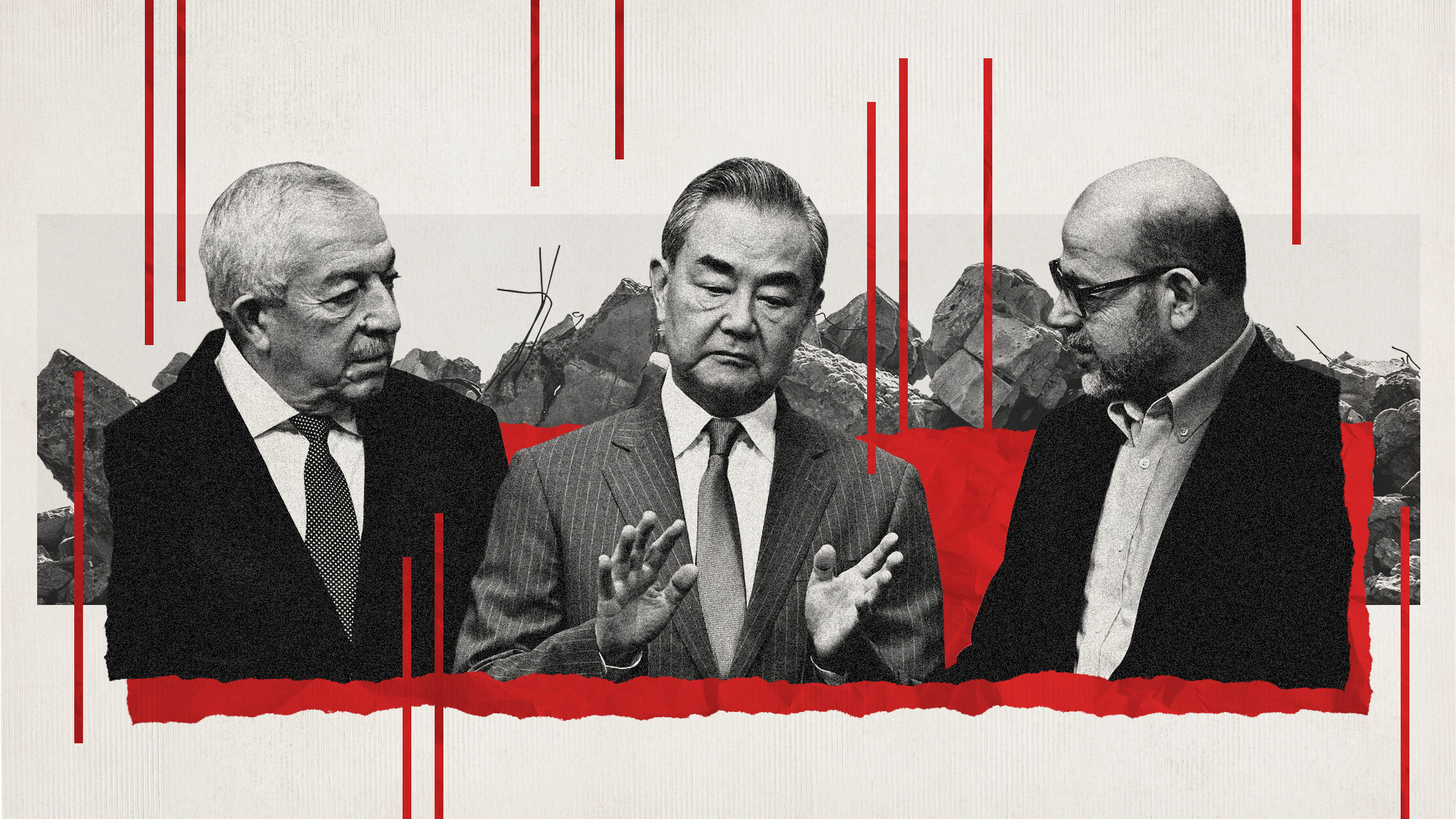Is the new Palestinian unity a mirage? And how will it affect the war?
'Bitter foes' Hamas and Fatah look to the future


A free daily email with the biggest news stories of the day – and the best features from TheWeek.com
You are now subscribed
Your newsletter sign-up was successful
Hamas and Fatah signed a unity agreement in Beijing on Tuesday. The longtime "bitter foes" vowed to jointly govern Palestinian territories whenever the Israel-Hamas war comes to an end, Politico said. That could signal the "thawing of relations and potential reconciliation of the two heavyweights of Palestinian politics." But there is skepticism. "A lot of this was just a PR stunt," said the Crisis Group's Tahani Mustafa. And of course, Israel might have something to say about any post-war arrangements. Prime Minister Benjamin Netanyahu, for example, doesn't want to see either group in charge. "I am not prepared to switch from Hamastan to Fatahstan," he said in April.
There are good reasons to doubt whether a Hamas-Fatah partnership will endure. The two groups "have been deeply divided for years," said The New York Times. In 2007, the factions fought a civil war that left Fatah in control of the West Bank and Hamas in control of Gaza. There have been "multiple past attempts" to bring both sides together since then. "All of those efforts have failed." And the hard feelings have persisted: Just two weeks ago, Fatah officials were criticizing Hamas for starting the war, said The Jerusalem Post. Gaza civilians killed in the conflict "did not sacrifice themselves — they were sacrificed," said a Fatah spokesman.
What did the commentators say?
The new agreement has "no practical significance," Jack Khoury said at Haaretz. There's not much beneath a general statement of unity — no "timetable nor on any workable steps" toward building a joint governing infrastructure, nor agreement on critical issues like the duration of the war and how to handle an Israeli withdrawal from occupied territories. So why bother? Because Palestinian leaders need "to at least give the impression" of unity. The hope for Hamas and Fatah is that such declarations "will mature into actual progress."
The Week
Escape your echo chamber. Get the facts behind the news, plus analysis from multiple perspectives.

Sign up for The Week's Free Newsletters
From our morning news briefing to a weekly Good News Newsletter, get the best of The Week delivered directly to your inbox.
From our morning news briefing to a weekly Good News Newsletter, get the best of The Week delivered directly to your inbox.
"At this stage the agreement is notable primarily for what it says about the parties involved," The Wall Street Journal said in an editorial. Fatah, sitting on the sidelines of the Israel-Hamas war, gets to "signal solidarity with the 'resistance.'" Hamas, which launched the murderous Oct. 7 attack on Israel, gets to use Fatah's relative moderation as "political cover." And China, which brokered the deal, meanwhile gets to "advertise its diplomatic success." The meaning for the future is clear: A future Palestinian state "would be a Hamas state, by force of the ballot or the bullet."
What next?
Israeli leaders slammed Fatah leader Mahmoud Abbas for aligning with Hamas, said The Times of Israel. "Instead of rejecting terrorism," Foreign Minister Israel Katz said in a social media post, Abbas "embraces the murderers and rapists of Hamas, revealing his true face." Israel has "ruled out" any post-war arrangement that leaves either Hamas or Fatah in charge of Gaza, said The Associated Press. And the U.S. has refused to accept any Palestinian government that doesn't "expressly" recognize Israel. The new agreement doesn't change those stances. "Israel's security will remain solely in Israel's hands," Katz wrote.
The agreement is a sign that Hamas is in dire straits in its war against Israel, one expert said to The Jerusalem Post. "Hamas, which is on the verge of being wiped out, is somehow being thrown a lifeline and being told, 'Before you are erased, concede and let Mahmoud Abbas take control'" of Gaza, said Arab affairs analyst Zvi Yehezkeli. The Palestinians reject that notion, CNN said. "The feeling of unity [to] confront the Israeli side," said one Palestinian official, "is very clear here."
A free daily email with the biggest news stories of the day – and the best features from TheWeek.com
Joel Mathis is a writer with 30 years of newspaper and online journalism experience. His work also regularly appears in National Geographic and The Kansas City Star. His awards include best online commentary at the Online News Association and (twice) at the City and Regional Magazine Association.
